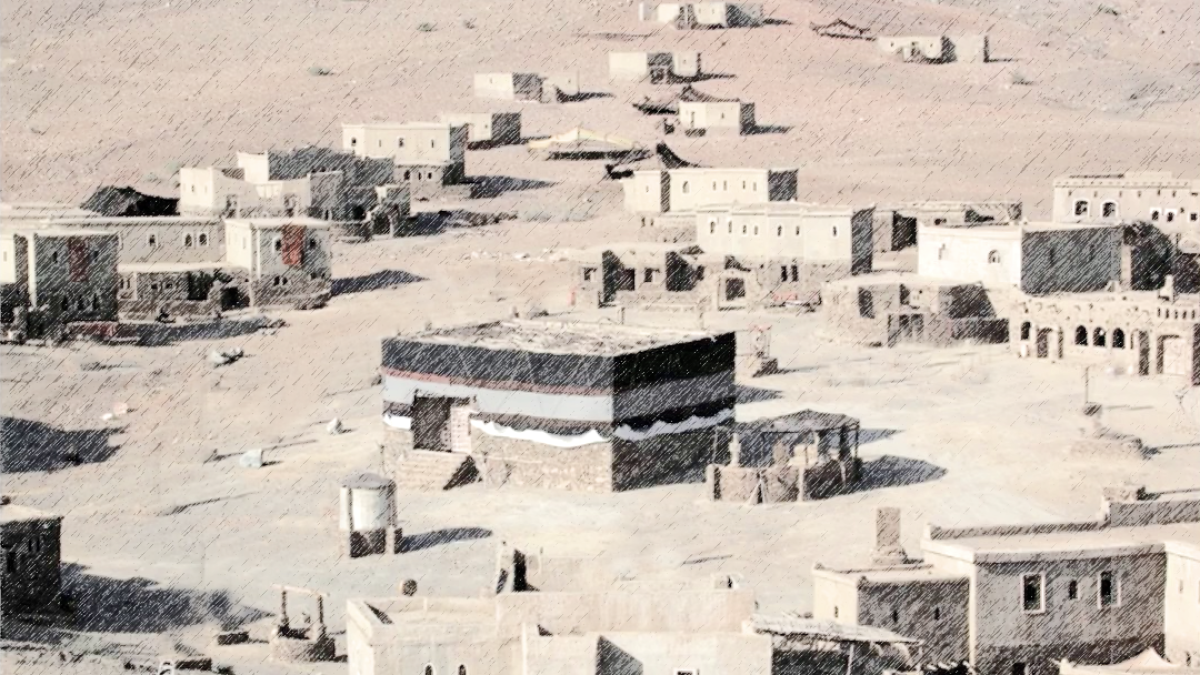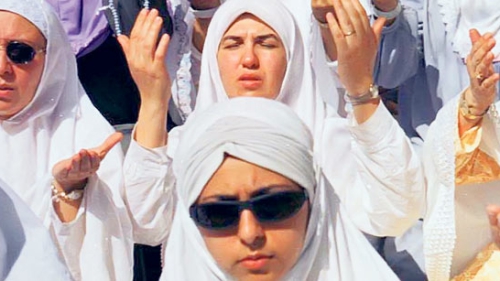The First Hajj

Essential to Muslim belief are Abraham and his son Ishmael. In the Qur’an they are the ancestors of the Arabs who together established Mecca’s unique spiritual Status. Every ritual action of the Hajj pilgrimage can be seen to have been initiated by these great patriarchs.
In the Muslim account Abraham has two separate families. His Jewish descendants come from his marriage to his cousin-wife Sarah. His Arab descendants come from Hagar, his Egyptian concubine. Hagar had been given to Sarah as a gift from Pharaoh’s sister and, although Sarah had initially allowed her husband to sleep with her, Sarah became furiously jealous when she remained barren while Hagar became pregnant. When Hagar gave birth to Ishmael, Abraham was forced to separate his two women. He took Hagar and her baby across the Arabian desert and left them with just a bag of dates and a jar of water in the empty valley of Mecca. As he climbed out of the valley he stopped on the plain and prayed to God to care for them.
As their supplies dwindled, Ishmael began to cry out with thirst. Hagar ran distractedly up first one hill and then another (these two hillocks, the hill of Safa and the hill of Marwah, stand just outside the Kaaba sanctuary) searching desperately for water. She ran between these hillocks seven times (the origin of the oldest of the practices of the Muslim pilgrimage) before finally collapsing. The Archangel Gabriel then appeared to her and dug down into the earth in order to expose the Zemzem spring, whose waters bubbled out to save both mother and son.
Many years later Abraham returned to find his son Ishmael grown into manhood and Hagar presiding over the town of Mecca. His joy was great but his dismay even greater when God tested him by calling upon him to sacrifice his first - born. Ishmael, like his half-brother Isaac, was of course spared this terrible fate. Instead father and son built the Kaaba as an altar to the One God. In the process they discovered the foundations of an earlier altar built by Adam but which had been washed away in the flood.
They instituted a three-day festival, which culminated in the sacrifice of a ram to commemorate God’s mercy. This is the original Eid el Kebir, the feast of sacrifice. It is the single greatest festival of the Islamic year.
Excerpted from "The Prophet Muhammad" by Barnaby Rogerson.
Topics: Hajj, History, Kabah, Prophet Ibrahim (Abraham), Prophet Ismail (Ishmail) Values: Sacrifice
Views: 12569
Related Suggestions

















